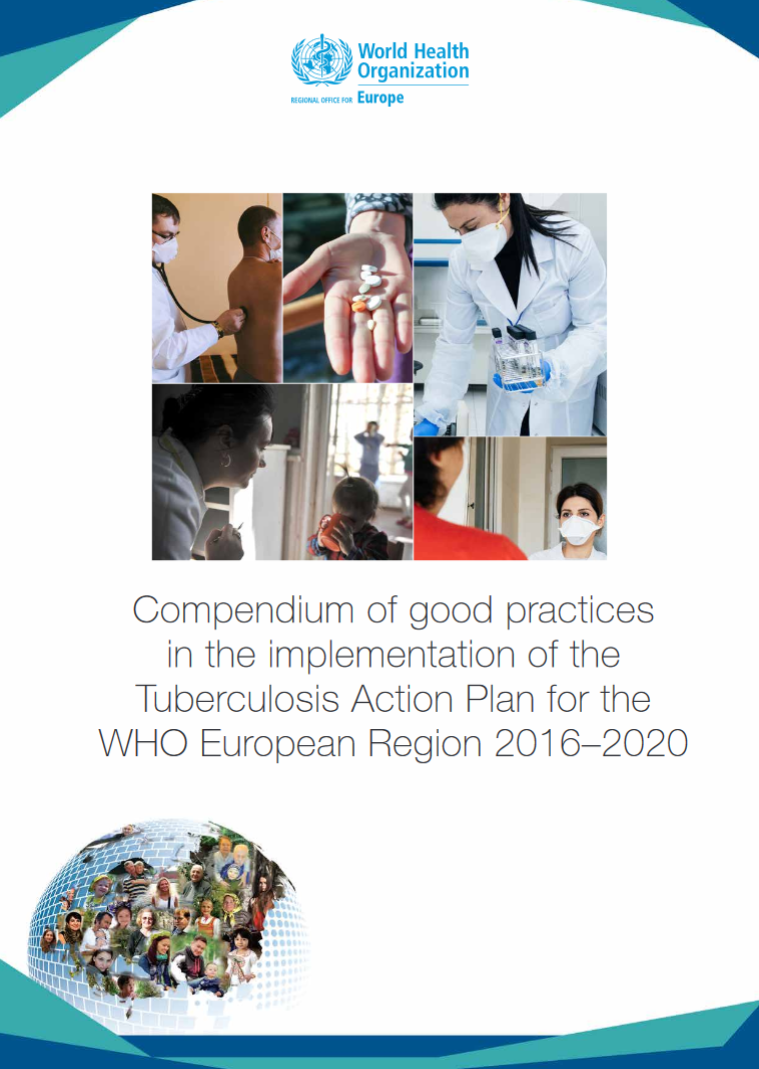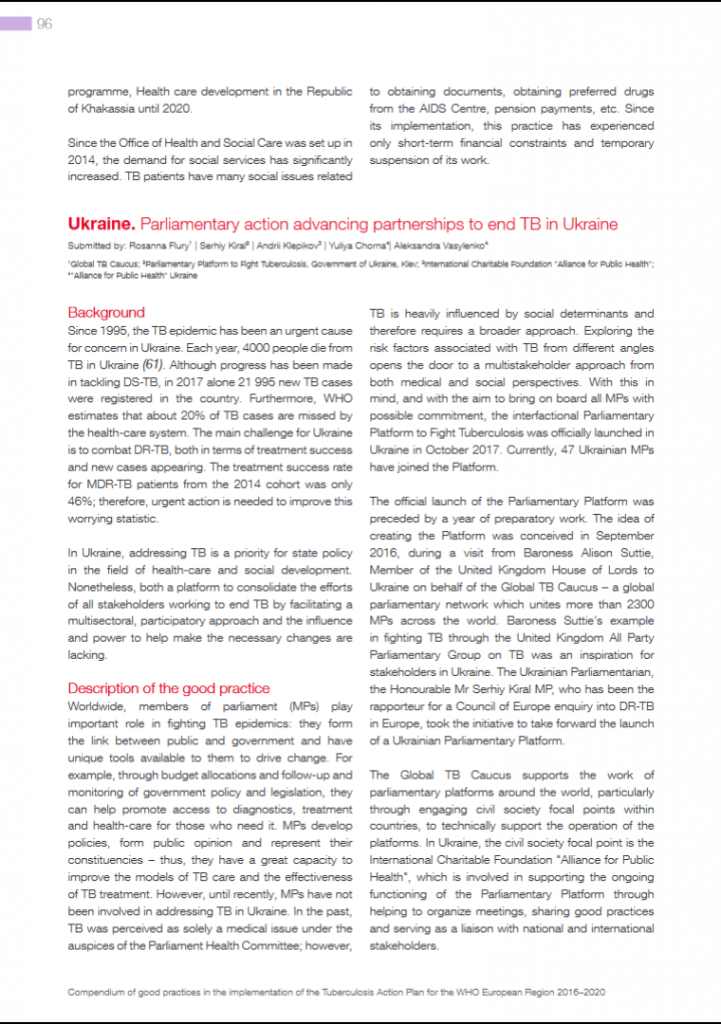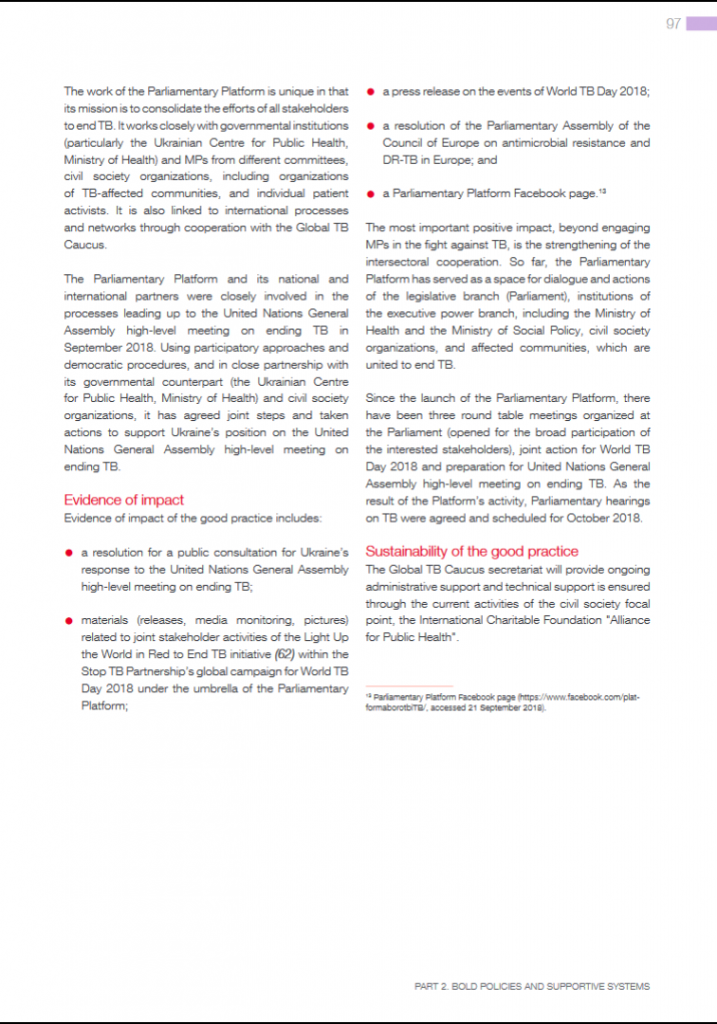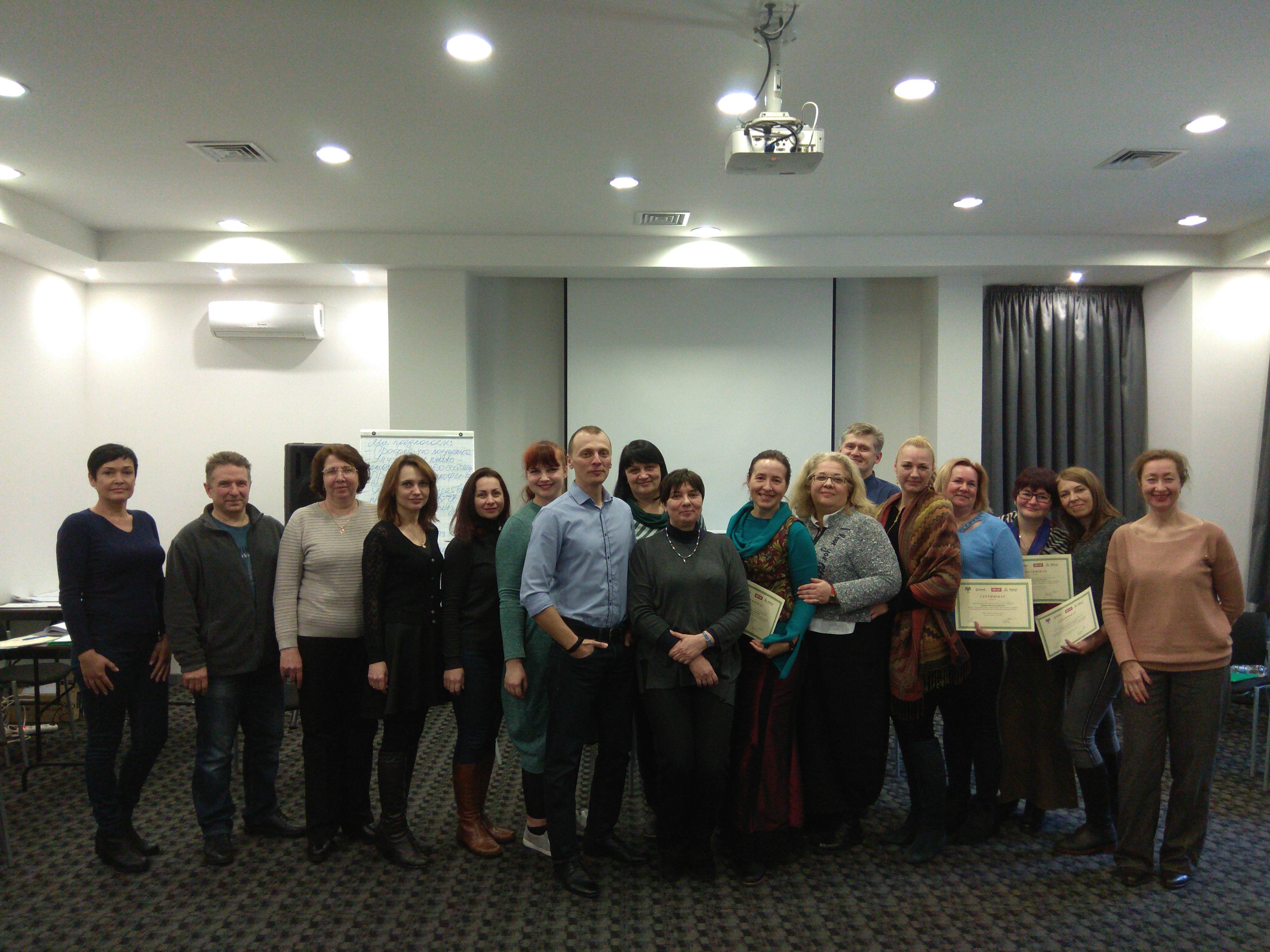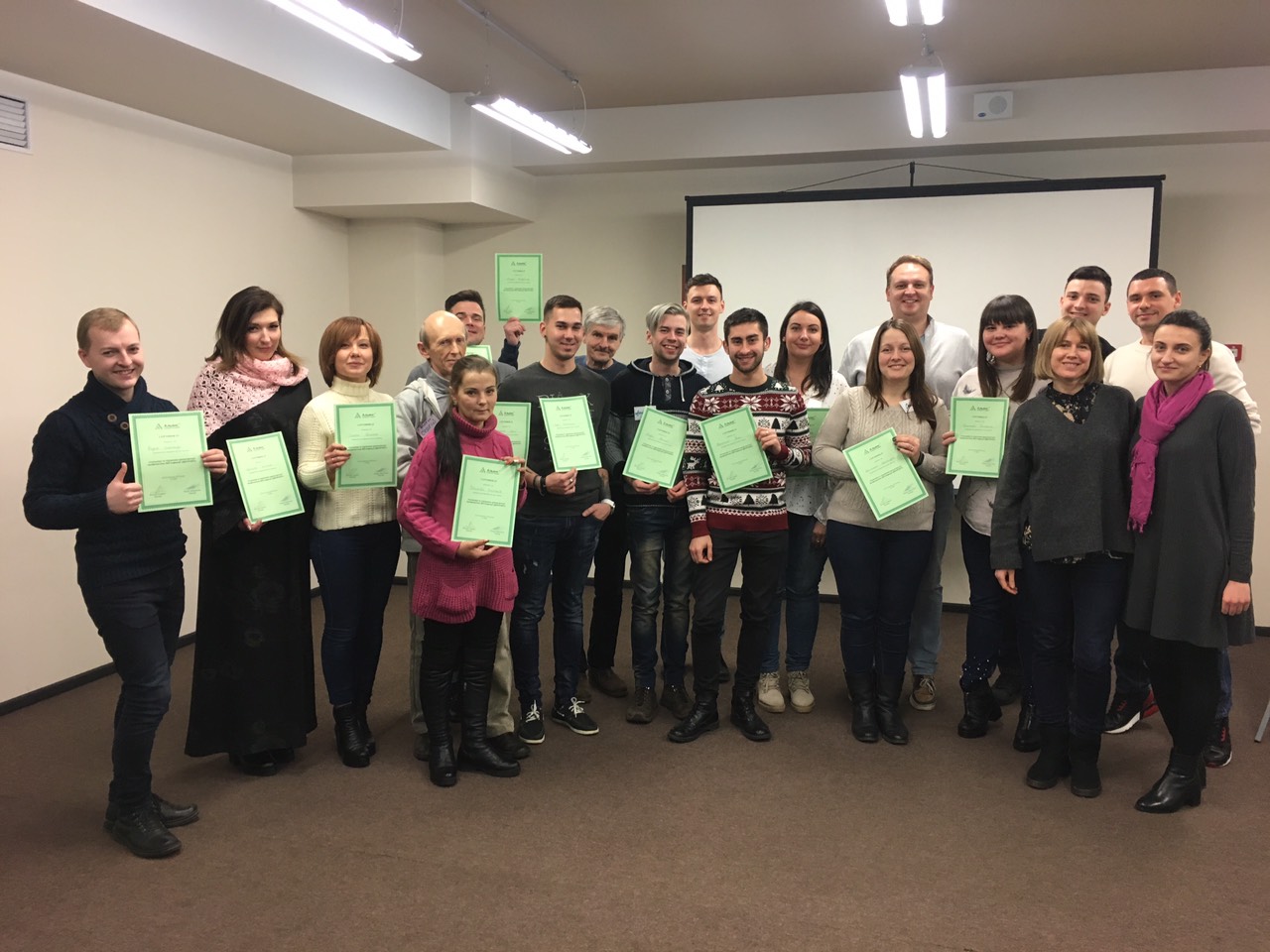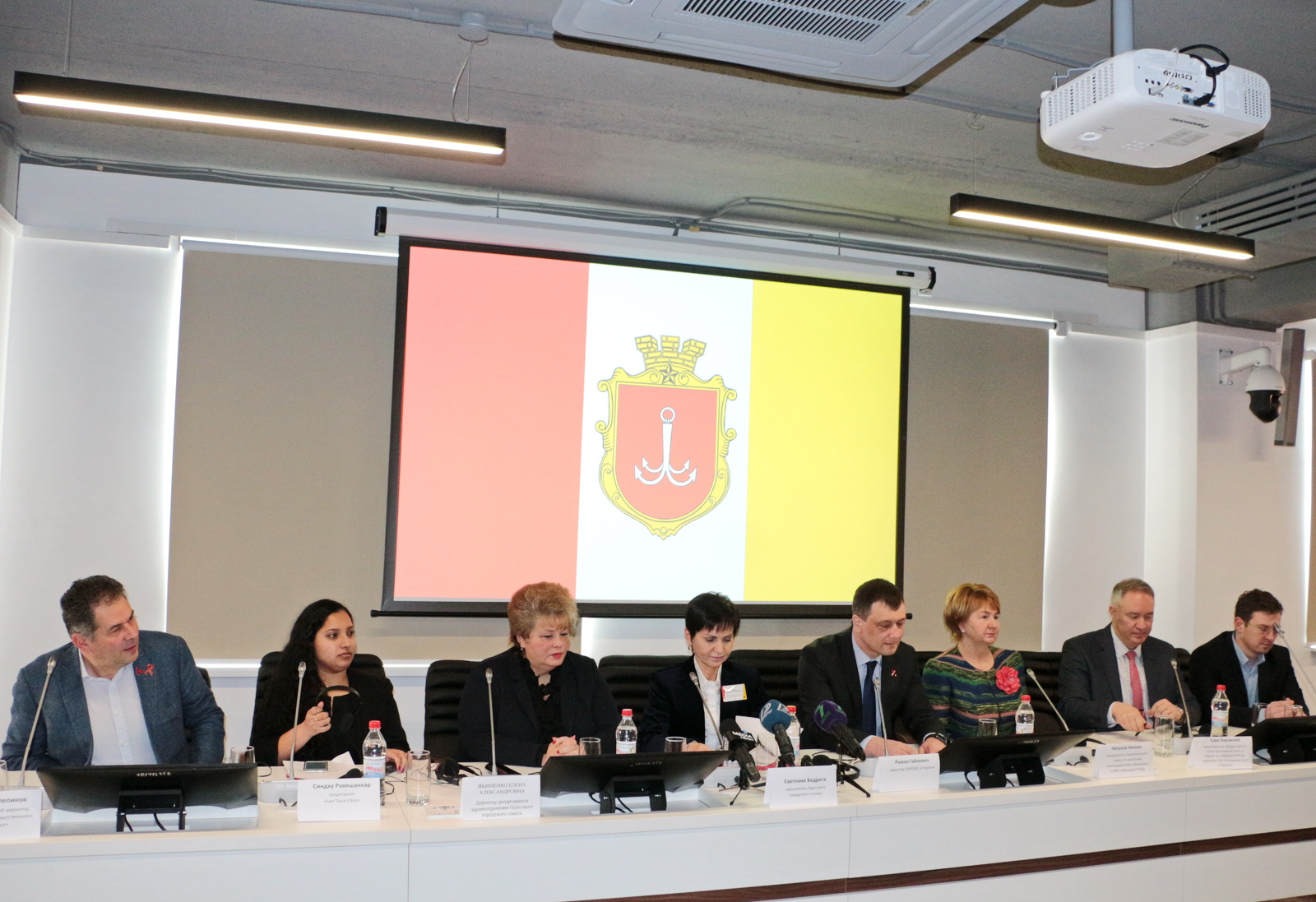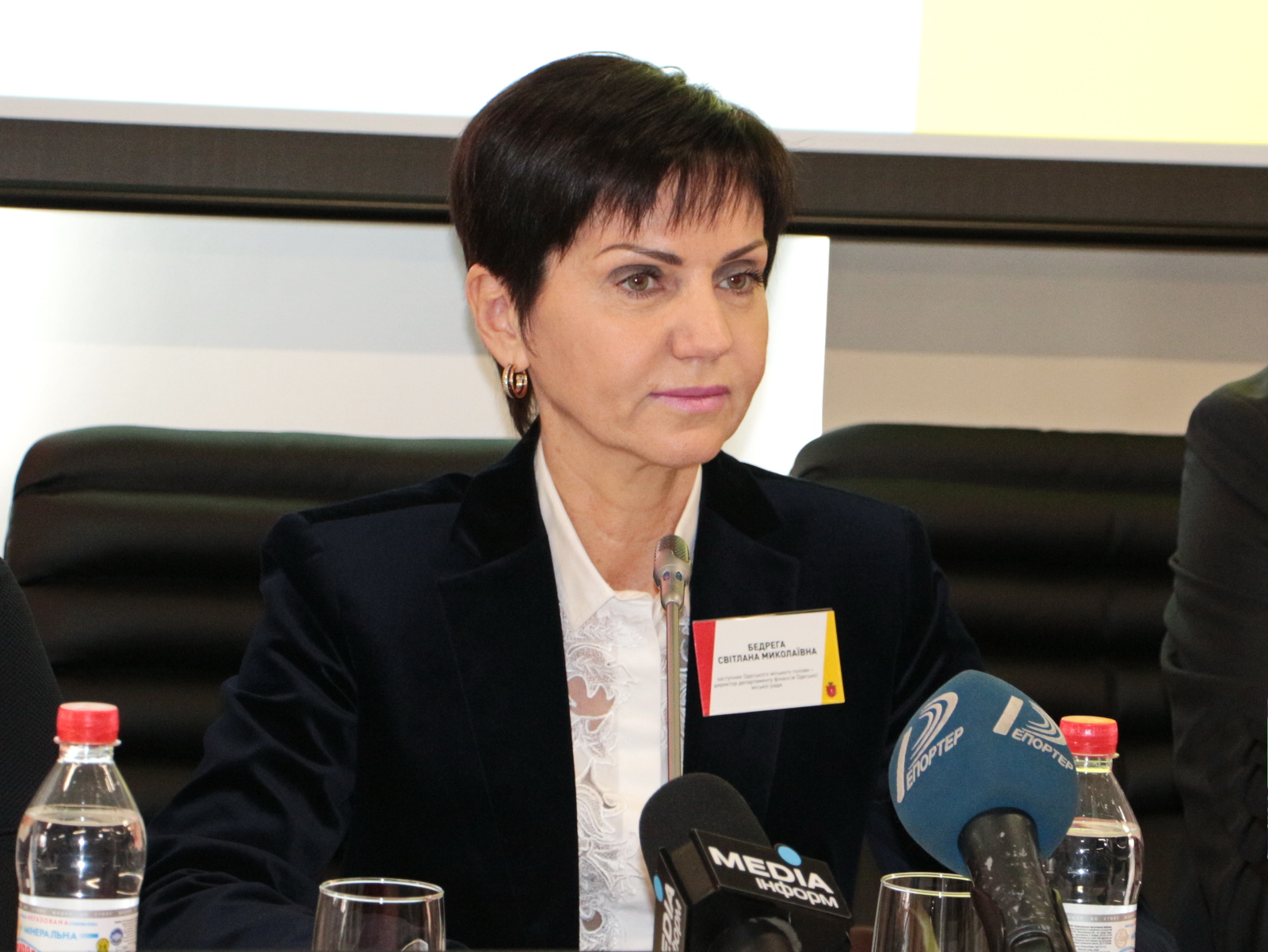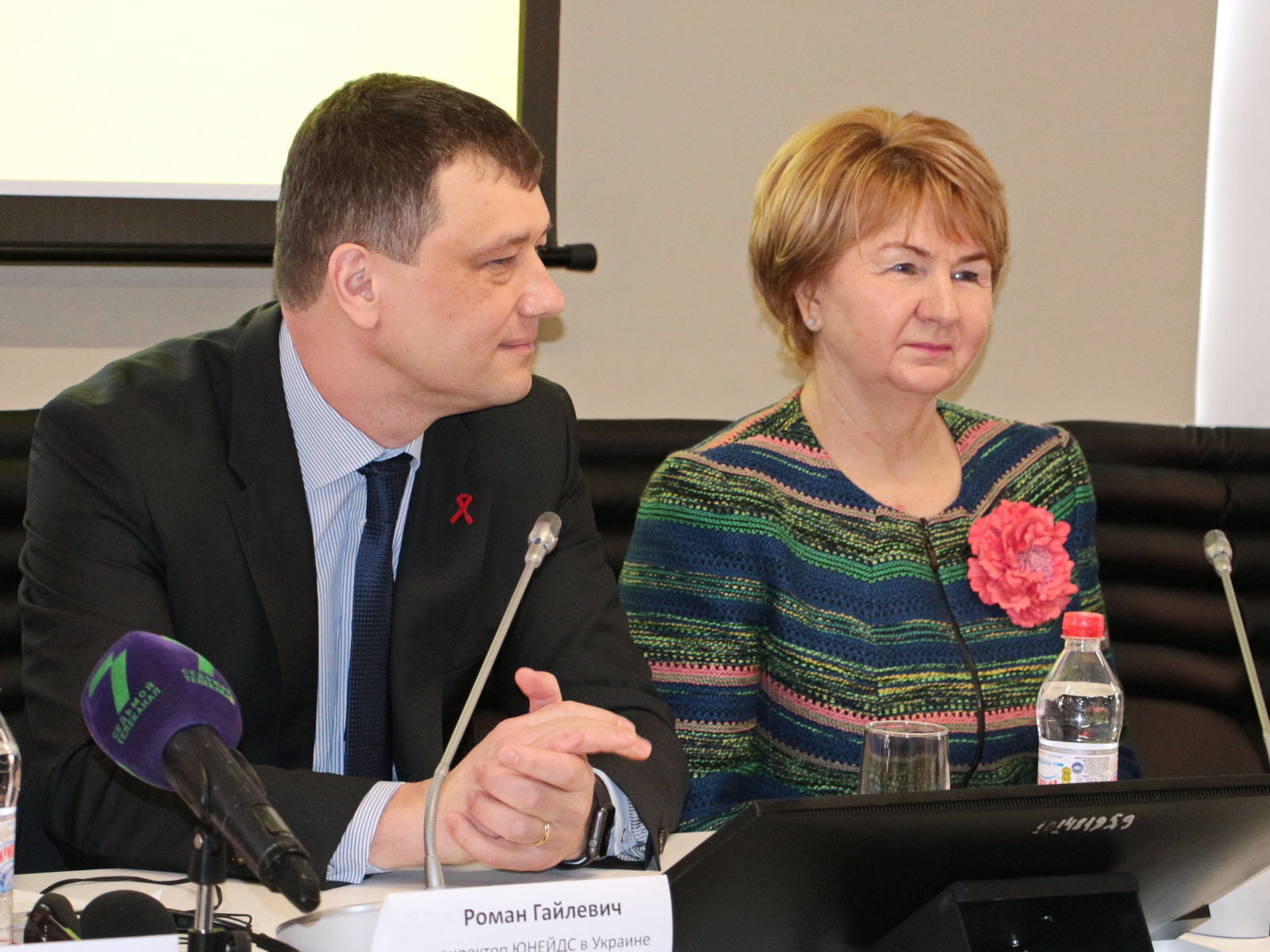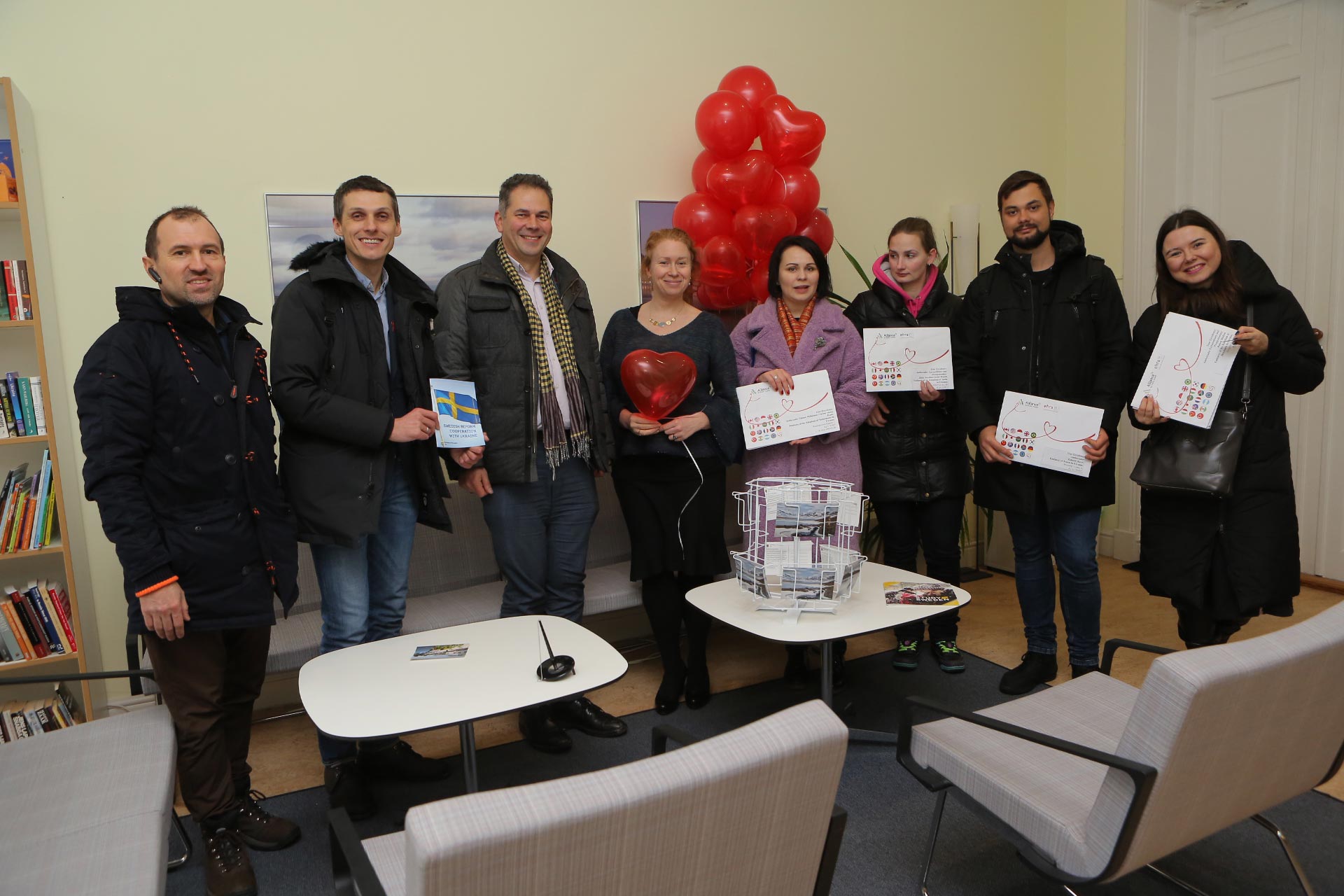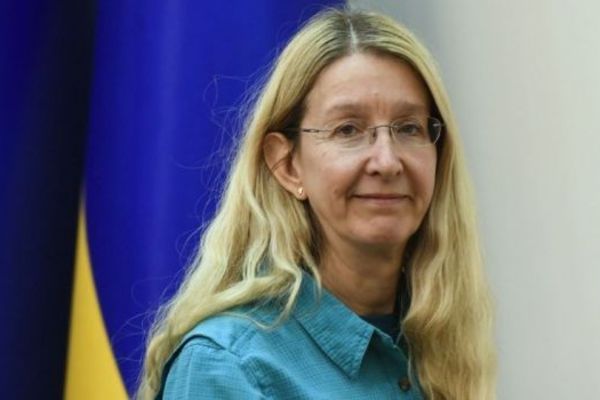Information statement
on the World Tuberculosis Day
On the occasion of the World Tuberculosis Day commemorated annually on March, 24, the Alliance for Public Health report on our achievements in solving the problem of detection and treatment of tuberculosis (TB) in a difficult epidemiologic context.
According to the World Health Organisation (WHO), tuberculosis ranks among the top-10 mortality reasons around the world, and is the main mortality reason in HIV-positive people. In Ukraine, tuberculosis kills over 3700 people a year, which is about 10 persons a day. Despite certain improvement of the situation observed in the recent years, in 2018 alone, 21.3 thousand new cases of tuberculosis were registered in Ukraine. At the same time, about 23% new cases in our country go undetected, and drug-resistant TB insusceptible to conventional medications requires more prolonged and expensive treatment with lower chances of a successful outcome.
The situation is further complicated by the fact that it is now the third year that the Parliament fails to adopt the National TB Program, which reflects the lack of proper political will in the legislature.
Alliance for Public Health (APH) continues implementing comprehensive measures to fight tuberculosis in Ukraine. In 2018, screening surveys under APH’s programs reached almost 308 thousand people of the key populations, and 16.7 thousand people tested TB positive during a screening received diagnostic services at health care facilities. For the first time, 3190 clients from the key populations underwent high-quality diagnostics — molecular genetic testing — at the screening stage. 811 TB cases were identified, with 93% of the TB-positive people starting treatment.
APH introduces new effective approaches to identification of TB cases and further immediate beginning of treatment. Screening of exposed persons strengthened with an innovative result-based funding (RBF) model enabled increasing the number of detected TB cases in exposed persons in 2018 by 3.4 times compared to 2017! And thanks to patient-centered models of care and integration of treatment and social support, treatment success rates of drug-susceptible and drug-resistant TB in 2018 reached as high as 90.9% and 88.7% respectively![i]
In 2018, APH consistently made efforts to restore control of the TB epidemic on the uncontrolled territories in Eastern Ukraine. These efforts have already brought substantial results. Thanks to the work of APH, as of early 2019, as many as 1405 patients were provided with a quality multidrug-resistant tuberculosis (MDR-TB). They comprise 100% of all MDR-TB patients receiving treatment on the uncontrolled territories of Donbass region.
As the coordination center for civil society organisations of Ukraine in the context of collaboration with the Global TB Caucus — an international movement uniting over 2000 MPs, APH provides technical assistance to the interfaction Ukrainian Parliamentary Platform against Tuberculosis. The Platform established in October 2017 includes 47 MPs of Ukraine. In the year and a half, the Parliamentary Platform have held 4 national round tables in the Parliament and, together with their partners, organised several major campaigns commemorating the World TB Day in 2018. Besides, the Parliamentary Platform took an active part in coordination of Ukraine’s participation in the UN General Assembly High-Level Meeting on TB in New York in 2018, and the report “Drug-Resistant TB in Europe” presented by the Chair of the Platform has enabled adoption of the corresponding PACE resolution. The activities of the Parliamentary Platform have been included in the WHO’s Compendium of good practices in the implementation of the Tuberculosis Action Plan for the WHO European Region 2016-2020 as a good example of advancing partnerships to end TB.
We would like to thank all our partners and donors, as well as representatives of civil society, communities, professional and governmental organisations. It is time to stop tuberculosis, and, together, we shall definitely do it!
[i] 90.9% — preliminary data on treatment success rate in patients with drug-susceptible TB who started the treatment in 2017.
88.7% — preliminary data on treatment success rate in patients with drug-resistant TB who started the treatment in Q2 and Q of 2016


